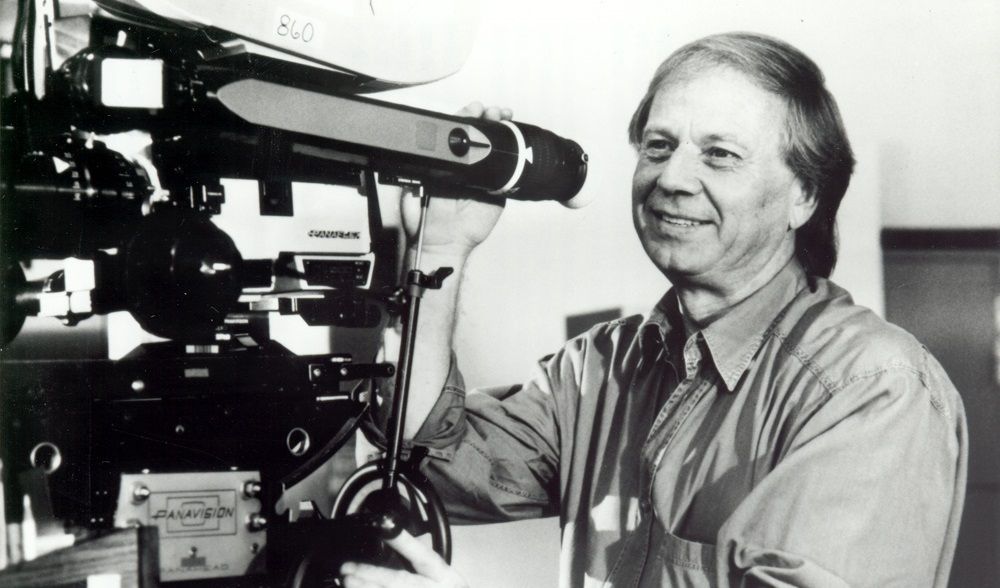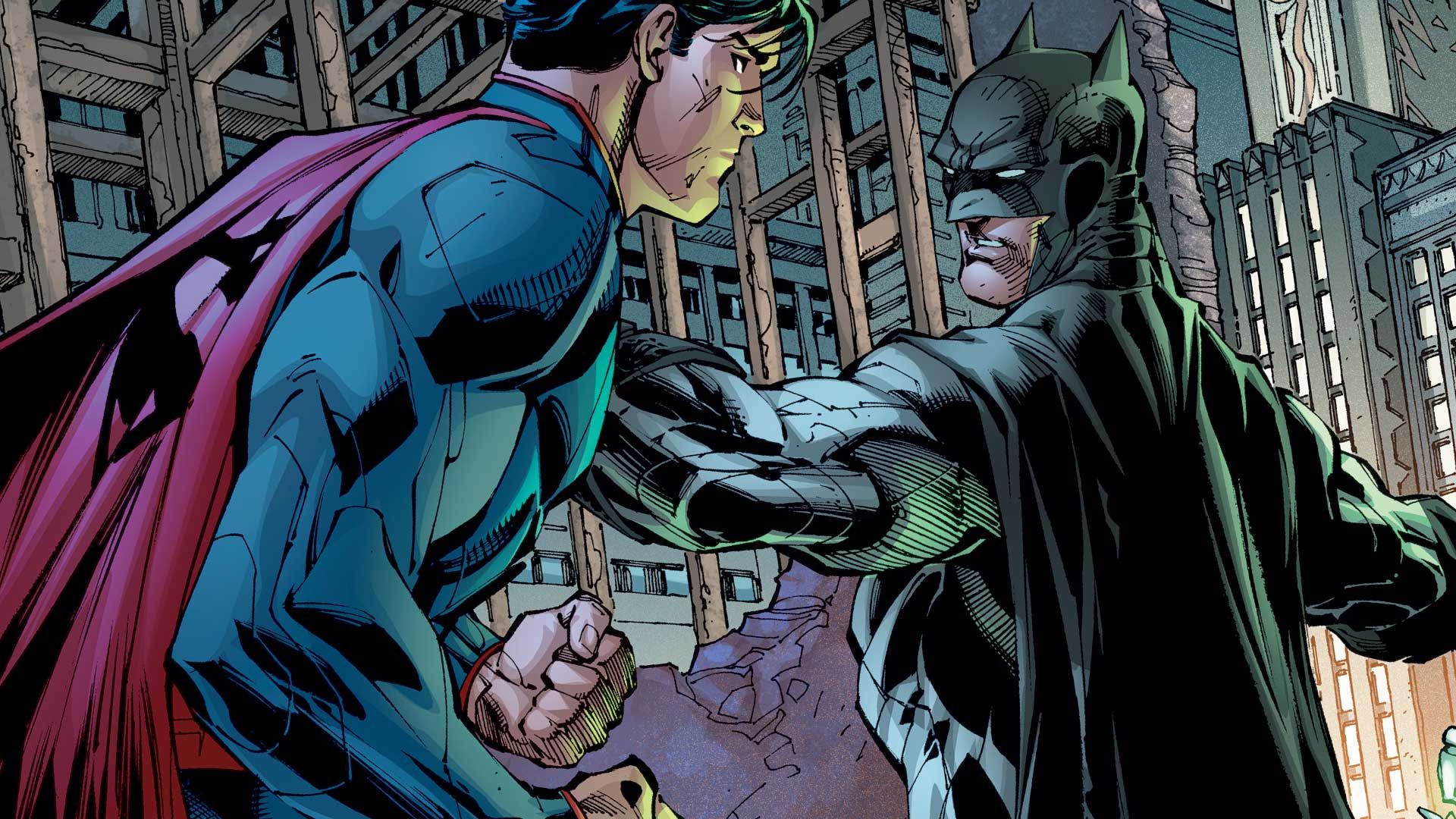At the dawn of the 21st century, two famous superheroes needed a little help in restoring their big-screen mojo. Batman and Superman were pop-culture icons who had endured for decades, but their most recent films had left audiences cold. Superman IV: The Quest for Peace had turned out so infamously lousy that it sent the franchise into hibernation for more than a decade while Batman & Robin had stopped the Batman movie series dead in its tracks. It was going to take something drastic to revive these characters. Perhaps even something as grand as Batman vs. Superman.
Well over a decade before Zack Snyder’s interpretation of the same concept graced movie theater screens, Warner Bros. pursued Batman vs. Superman as an easy way to hit two birds with one stone. If pulled off just right, the project would revive a pair of franchises in a single go. Plus, it would be a groundbreaking work that combined iconic superheroes in a way that had never been attempted in a pre-Iron Man world. Pulling this off would be a tall order, but it was one whose benefits seemed enticing enough to encourage Warner Bros. brass to pursue it.
Initially, the production was set to be based on a screenplay penned by Andrew Kevin Walker and would be directed by Wolfgang Petersen, the latter of whom was hot off helming the Warner Bros. 2000 hit The Perfect Storm. The first details to emerge through an Entertainment Weekly report included the reveal that this project would not delve into origin stories for either of these new incarnations of Superman and Batman. Instead, this blockbuster would hit the ground running with both heroes firmly established and their opposing moral codes similarly cemented. Petersen also saw a conflict between Superman and Batman over ideology as a way of reflecting the moral ambiguity of a world that was still reeling from 9/11.

Among those eyeballed for the two lead roles at this earliest of stages were Johnny Depp, Jude Law, and future Oswald Cobblepot actor Colin Farrell, with the line-up of prestigious names reflecting Petersen’s desire for Batman vs. Superman to have a buzzy cast on par with the star-studded line-up seen in the then-recent Spider-Man. However, before any actors could be selected, another rewrite of the script was in order. Akiva Goldsman was tasked with penning a new draft of this important project and his vision for the blockbuster served as a harbinger for the grimness that would come to dominate cinematic takes on Batman from here on out.
In 2020, Goldsman divulged the finer details about what his take on the property entailed, with his film beginning on a somber note with the death of Alfred Pennyworth. From here, Bruce Wayne would have lost his wife to The Joker, an event that this character would eventually blame on Superman. This would result in the duo getting into a skirmish, while Superman himself would be grappling with a recent divorce. Goldsman’s take on Batman vs. Superman was a dour affair that wasn’t afraid to have these characters constantly grapple with loss and sorrow. Additionally, Goldsman’s detailing of the film revealed Farrell and Law had been on deck to play Batman and Superman, respectively.
Despite having a script on hand, some casting in the wings, and even a project summer 2004 release date, Batman vs. Superman would never see the light of day. In 2010, Petersen detailed to MTV News that the production ended up crumbling because of Warner Bros. opting to pursue another course for a Superman movie. Specifically, J.J. Abrams turned in a screenplay for a production entitled Superman: Flyby that proved to be good enough to get Warner Bros. to rethink its strategy for handling these characters. Suddenly, the idea of dropping new versions of the heroes in one movie was eschewed in favor of trying out separate reboots and then dealing with a showdown feature down the road.
In September 2002, The New York Times, in a piece detailing the executive infighting that had hampered the Superman franchise, detailed another key reason Warner Bros. opted for Flyby over Batman vs. Superman. Though the latter film was far enough in production to aim for a February 2003 start date for principal photography, its screenplay, as reflected in Goldsman’s descriptions of key plot points, was a brutally dark affair. The studio had gravitated more towards the lighter and hopeful aesthetic of Flyby, leading to that project getting to be the top priority for DC Comics movies in this era.

Additionally, all that executive infighting was especially pronounced on Batman vs. Superman. Per outlets like The Los Angeles Times, Warner Bros. executive Lorenzo di Bonaventura was passionate about the feature and felt it was the perfect title to convey what was meaningful about each of the titular superheroes. Warner Bros. head Alan Horn disagreed and was instrumental in turning the tide of Warner Bros. enthusiasm towards the more optimistic Superman: Flyby. Once Warner Bros. brass overwhelmingly voted to forego Batman vs. Superman, di Bonaventura, who’d had many creative struggles at the studio in recent years, saw this as the straw that broke the camel’s back. He left the company a month after Batman vs. Superman was canned.
Despite causing so much internal drama at Warner Bros., Superman: Flyby, like so many other attempts to relaunch the Superman series in the late 1990s and early 2000s, would eventually fade out. Still, the maneuver to make it a priority project instead of Batman vs. Superman did open the door for other solo superhero films to exist. Specifically, the decision to press pause on the production led to Batman Begins and Superman Returns, with the former ushering in a new era of comic book movies and popularizing the grim and gritty aesthetic for all American blockbusters. The tone Batman vs. Superman had been pursuing was eventually realized by Christopher Nolan’s vision for this superhero.
Meanwhile, Petersen immediately shifted over to the 2004 historical epic Troy once Batman vs. Superman went up in smoke, with Warner Bros. offering him this production as a consolation prize of sorts for scuttling his DC Comics adaptation. The ripple effects of Batman vs. Superman even extend to the solo Catwoman movie starring Halle Berry. With Batman vs. Superman no longer able to meet its summer 2004 release date, Warner Bros. still wanted a major DC Comics movie adaptation released that season. This led to Catwoman getting rushed into production so it could fill that empty slot on the calendar.
Even though it’s largely an unknown entity to the general public, this version of Batman vs. Superman has had an enormous impact on the world of DC Comics adaptations, right down to it foretelling how its two prospective leading men would find their way into comic book movies. Still, it must be inevitably disappointing for the key creative participants of this project that Batman vs. Superman came so close to existing only to be snatched away from reality at the last minute. At least the eventual $800+ million worldwide box office haul of Batman v. Superman: Dawn of Justice can serve as a minor consolation prize for folks like Petersen and di Bonaventura. Their creative instincts circa 2002 was right on the money, as there was indeed interest from the general public in seeing these two superheroes go toe-to-toe.
"original" - Google News
March 25, 2022 at 11:30PM
https://ift.tt/oeKjDR9
The Original Batman vs. Superman Movie You Never Saw - Collider
"original" - Google News
https://ift.tt/DHLRdv9
https://ift.tt/LgBIpjK
Bagikan Berita Ini















0 Response to "The Original Batman vs. Superman Movie You Never Saw - Collider"
Post a Comment